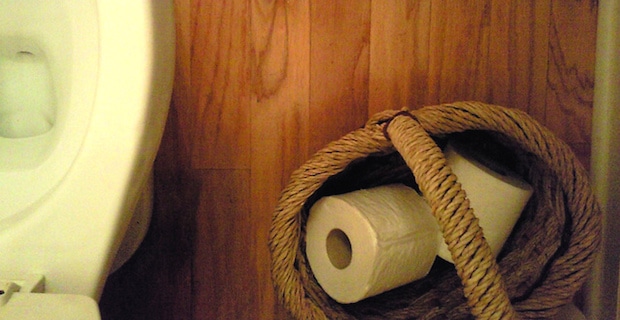
Did you know that laxatives are among the most commonly sold drugs in North America? But they also come with risks. Long-term and even short-term use of laxatives can cause dependency, as well as wash away healthy intestinal bacteria. They can also turn your colon walls black and cause digestive health issues.
There are a variety of ailments of the colon and small intestine, many of which can be helped with a proper diet and by learning to regulate one’s own eliminatory process. The top three problems and disease of the bowels are constipation, diarrhea, and irritable bowel syndrome. Other common complaints include: hemorrhoids, diverticulitis, fissures, intestinal toxemia, Crohn’s disease, colitis, intestinal toxemia, atonic colon, carcinoma or cancer of the colon. Colon cancer is the second leading cause of cancer deaths in the United States. It appears more frequently in woman while rectal cancer has a higher incidence in men.
Read more about ways to prevent constipation
Periodic cleansing may minimize the exposure of potential carcinogens to the colon walls, dilute the toxin concentration in the cecum and facilitate its removal. The result is a reduced load on the liver and lymphatic system allowing the five eliminatory organs of the body (skin, lymph, lungs, kidneys and bowel) to balance the removal of these toxins with their production. When a breakdown in one of more of these systems exists and toxins abound, the potential for disease exists.
While measures that treat the symptoms will provide only temporary relief of this problem, intestinal cleansing can be a therapeutic measure that addresses the cause or source of the problem.
What is your body trying to tell you?
Not all stools are created equal! The quality of one’s stools can tell you a lot about your digestive health. Learn to read some of the signs to help determine what your gastrointestinal (GI) system is telling you. Below are a few examples.
- Rock hard stoolsConstipation; diets low in roughage and/or water; sedentary lifestyle; persons who ignore body signals for defecation; a sign of too much concentrated protein.
- Poorly formed stoolsDiarrhea; diets with too much roughage; colons with too little muscle tone; poor food combinations; food allergies.
- Floating stoolsHigh fat diets; persons with poor absorption or digestion of fats; high mucus conditions.
What is considered a healthy bowel movement?
In truth, there often appears to be no “norm” when it comes to stools, as they are variable and dependent on many factors such as age, the condition of the diet, the condition of the colon, the overall health of the individual, whether or not the individual is taking medication, and other factors.
Read more about colon hydrotherapy
A healthy adult with a clean diet who is not on medication can generally expect to have a bowel movement at least once a day, and a “typical stool” resembles the shape and consistency of a ripe banana. The stool should be soft, well formed, light brown and easy to eliminate. There should be no straining, pain or discomfort involved. Vegetarians or those whose diets are low in dairy and meat tend to have very little to no odor and gas. You should feel a “relief” and sense of lightness afterwards, as opposed to feeling as though you are still “full” and need to eliminate more somehow, but can’t.
Image: macaron*macaron(Est Bleu2007)










